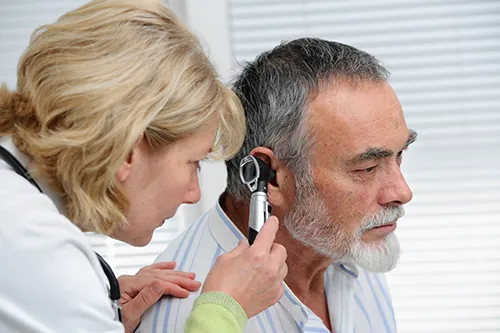
Tackling Antibiotic Overuse: A Comprehensive Study at an Equine Veterinary Hospital
2025-04-05
Author: Daniel
In a groundbreaking study presented at the 2024 American Association of Equine Practitioners Convention, researchers shed light on antibiotic use in equine veterinary practices, spotlighting a pressing issue: unnecessary antibiotic prescriptions.
Dr. Pamela Velarde, a large animal medicine resident at Cornell University, emphasizes the critical nature of this issue. "Every time we prescribe an antibiotic, we increase the potential risk of developing resistance, both in the pathogens responsible for infections and in the horse's natural gut flora,” she explained. To mitigate this risk, Dr. Velarde stresses the need to limit prophylactic antibiotic use to only those cases with clear evidence of infections.
Collaborating with Dr. Gillian Perkins, a Diplomate of the American College of Veterinary Internal Medicine (DACVIM), Velarde conducted a thorough retrospective analysis of antimicrobial prescribing practices at Cornell’s Veterinary Teaching Hospital. Their research revealed some concerning trends. In 2021, one-third of all equine visits resulted in antibiotic prescriptions, including a notable percentage of World Health Organization-designated high-priority critically important antimicrobials (HPCIAs).
The findings indicate that among 543 horses given antibiotics, nearly half showed no signs of infection. Alarmingly, less than 15% of the cases had confirmed infections based on culture results. Dr. Velarde cited that for horses subjected to surgery, antibiotics were administered universally, even for those undergoing "clean" surgeries—procedures which typically do not require antibiotic prophylaxis.
"Our data highlighted that around one-third of our equine patients received antibiotics without evidence of clinical infections, and culture testing was rarely performed," stated Velarde. "There's an urgent need for improvement in our antimicrobial stewardship, especially for clean surgical cases where antibiotics might not even be necessary."
The researchers are moving forward with plans to enhance their antimicrobial stewardship strategies. The next phase involves developing guidelines that align with World Health Organization recommendations on medically important antimicrobials. This three-tiered approach will focus on the justification for antibiotic use, the necessity for culture and sensitivity testing, and the approval process through the hospital's Infection Control Committee.
This study underscores the importance of responsible antibiotic prescribing in veterinary medicine, as improper use can contribute to the growing global issue of antimicrobial resistance. As the equine veterinary community continues to face this challenge, it becomes increasingly vital to refine practices, ensuring that antibiotics are used judiciously and only when truly warranted.



 Brasil (PT)
Brasil (PT)
 Canada (EN)
Canada (EN)
 Chile (ES)
Chile (ES)
 Česko (CS)
Česko (CS)
 대한민국 (KO)
대한민국 (KO)
 España (ES)
España (ES)
 France (FR)
France (FR)
 Hong Kong (EN)
Hong Kong (EN)
 Italia (IT)
Italia (IT)
 日本 (JA)
日本 (JA)
 Magyarország (HU)
Magyarország (HU)
 Norge (NO)
Norge (NO)
 Polska (PL)
Polska (PL)
 Schweiz (DE)
Schweiz (DE)
 Singapore (EN)
Singapore (EN)
 Sverige (SV)
Sverige (SV)
 Suomi (FI)
Suomi (FI)
 Türkiye (TR)
Türkiye (TR)
 الإمارات العربية المتحدة (AR)
الإمارات العربية المتحدة (AR)